Question And Answer
Publications
Articles, publications, books, tools and multimedia features from the U.S. Institute of Peace provide the latest news, analysis, research findings, practitioner guides and reports, all related to the conflict zones and issues that are at the center of the Institute’s work to prevent and reduce violent conflict.
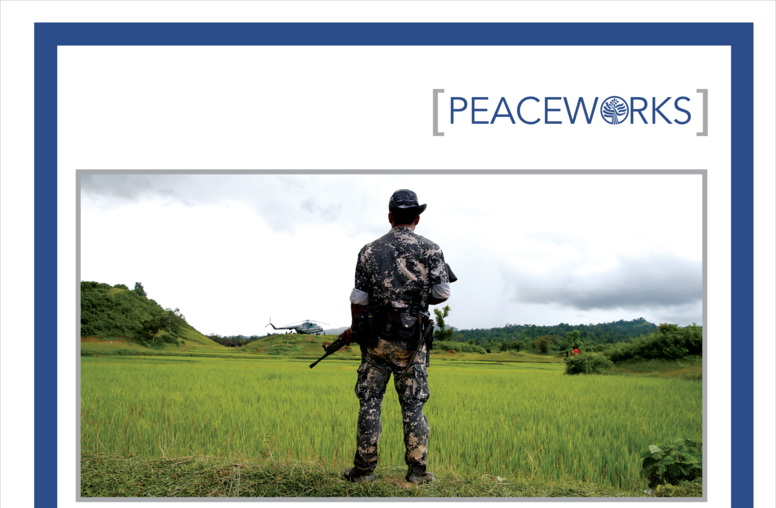
Myanmar’s Armed Forces and the Rohingya Crisis
In 2016 and 2017, in response to small attacks by the Arakan Rohingya Salvation Army, Myanmar’s armed forces launched “area clearance operations” against the Rohingya minority in Rakhine State—a response the U.S. government has called ethnic cleansing. This report explores the structure, training, and ethos of Myanmar’s armed forces...
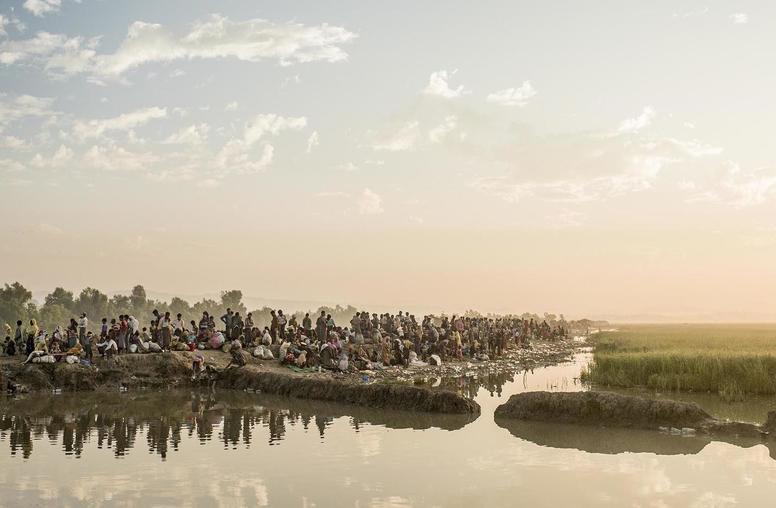
Burma’s Balancing Act on Rakhine
In a reversal of past policy, Burma’s government last week signed a memorandum of understanding (MOU) with the United Nations to facilitate the repatriation of Rohingya refugees back to Burma. This unexpected move builds on the momentum established last month, when Burma hosted a United Nations Security Council (UNSC) delegation and invited the U.N. to assist in the repatriation of the Rohingya and the rehabilitation of Rakhine state.

Episode 52 - Zinaida Besirevic
Our guest on this episode is USIP Research Fellow, Zinaida Besirevic, a Ph.D. candidate in human development and cognition at the University of California, Berkeley. Her dissertation compares children and adults in their reasoning about violations of Human Rights and infringements on human dignity. Together we discuss if moral reasoning changes with development, and whether and why we become more likely to tolerate harm.
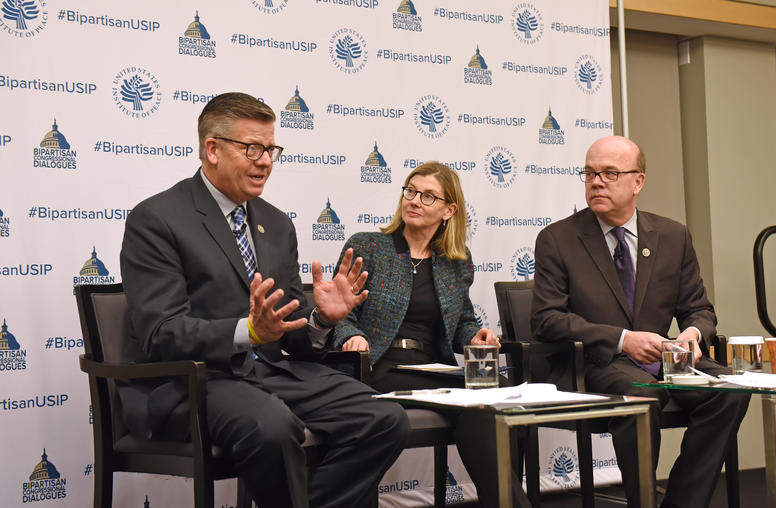
Congress Can Be Bipartisan: The Case of Human Rights
In an American political culture coarsened by belligerence, dozens within Congress still are shaping bipartisan foreign policies to maintain a strong U.S. defense of human rights worldwide. The ability of Congress to sustain bipartisanship on human rights issues is vital to long-term international stability and U.S. national security.
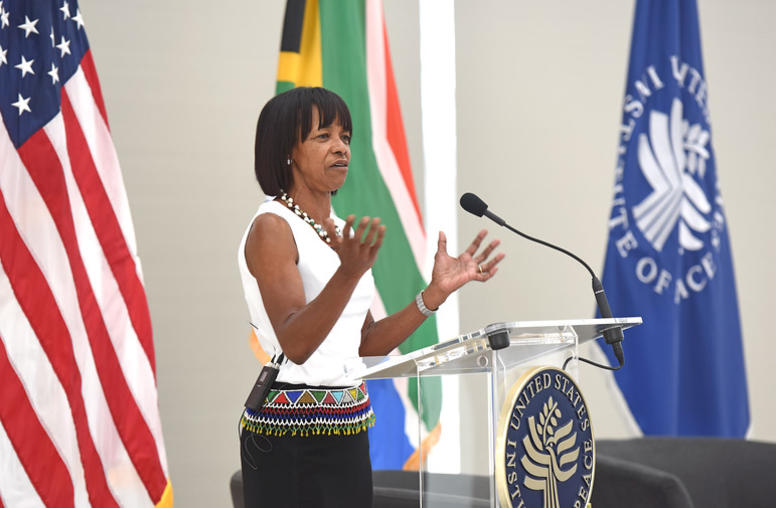
At 100, Nelson Mandela's Meaning for 'A Troubled World'
One hundred years after Nelson Mandela’s birth, his example calls nations and political elites to examine their failings in providing justice and hope to people worldwide, said Cheryl Carolus, Mandela’s colleague in the movement that toppled South Africa’s apartheid regime. Amid warfare across the globe, and alienated voters roiling the politics of democracies, “maybe it is fortuitous that we are confronted with these challenges in the centenary year of Nelson Mandela,” Carolus said, delivering USIP’s inaugural Nelson Mandela Lecture. “Maybe we will remind ourselves that peace can only reign and endure if there is justice and equality.”
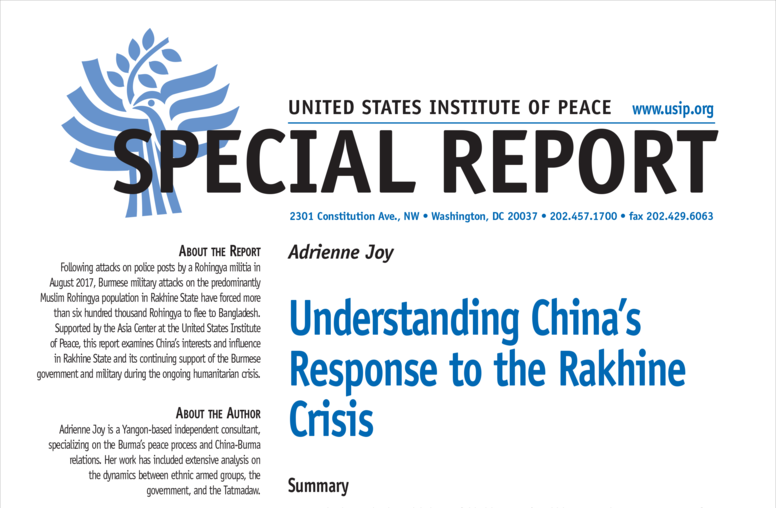
Understanding China’s Response to the Rakhine Crisis
Following attacks on police posts by an armed Rohingya militia in August 2017, reprisals by the Burmese government have precipitated a humanitarian crisis. More than six hundred thousand Rohingya have fled to Bangladesh, where they face an uncertain future. Publicly stating that the root cause of conflict in Rakhine is...
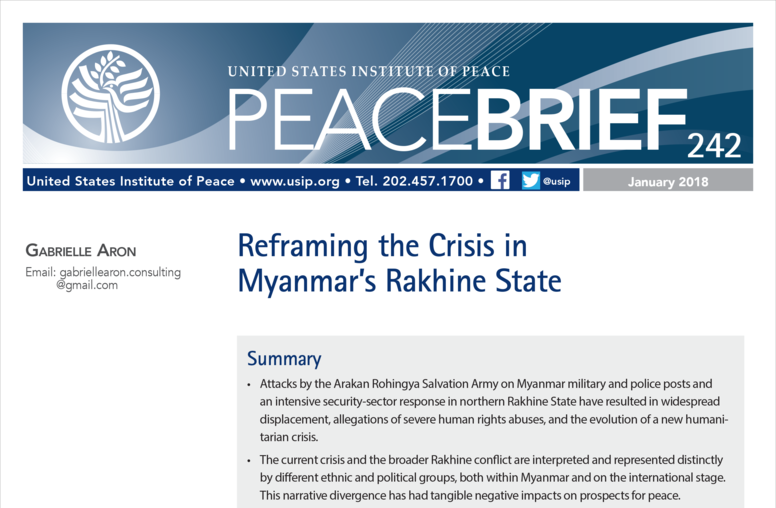
Reframing the Crisis in Myanmar’s Rakhine State
In the aftermath of attacks by the Arakan Rohingya Salvation Army and subsequent military clearance operations, two competing narratives have emerged. One frames the attacks as a critical threat to national security and the majority cultural-religious status quo. The second focuses on the human cost...
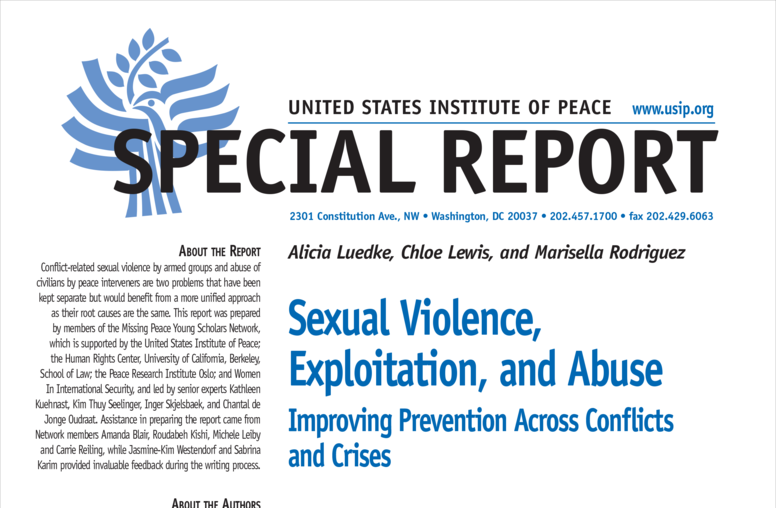
Sexual Violence, Exploitation, and Abuse
Former UN secretary-general Ban Ki-moon and current UN Secretary-General António Guterres have both recognized sexual exploitation and abuse (SEA) by interveners as a risk to peacekeeping operations, which has led to a series of new policy responses. As institutions begin to adopt new...
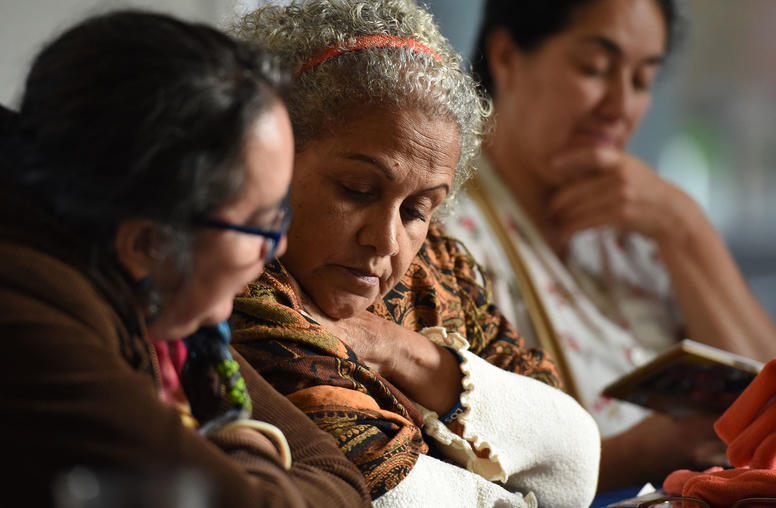
The Essential Role of Women in Peacebuilding
Evidence indicates that women participants in peace processes are usually focused less on the spoils of the war and more on reconciliation, economic development, education and transitional justice – all critical elements of a sustained peace.
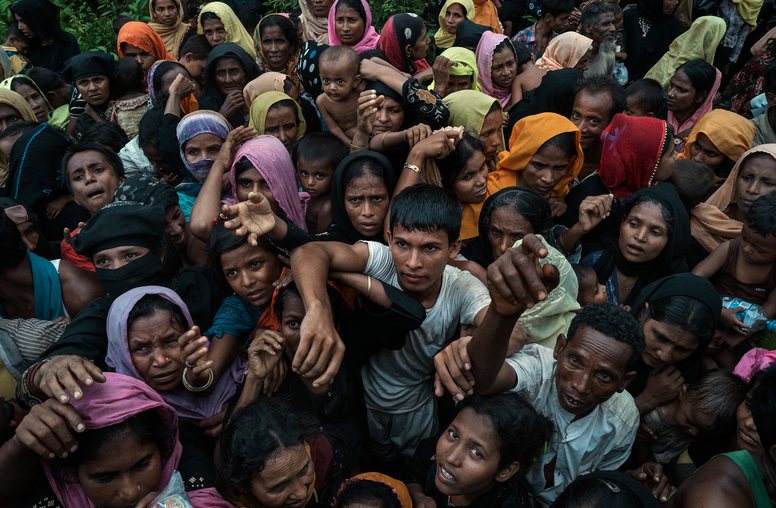
Democracy in Myanmar — combating the Rohingya Crisis
The indisputable fact of the unfolding Rohingya crisis is that more than 600,000 people have been forced to flee across the Burmese border into Bangladesh since August, with terrible reports of rape and ethnic cleansing. Beyond that, however, the facts of what happened — and how — dissolve into confusing and competing narratives, underscoring the difficulty of resolving a complex and long simmering conflict.